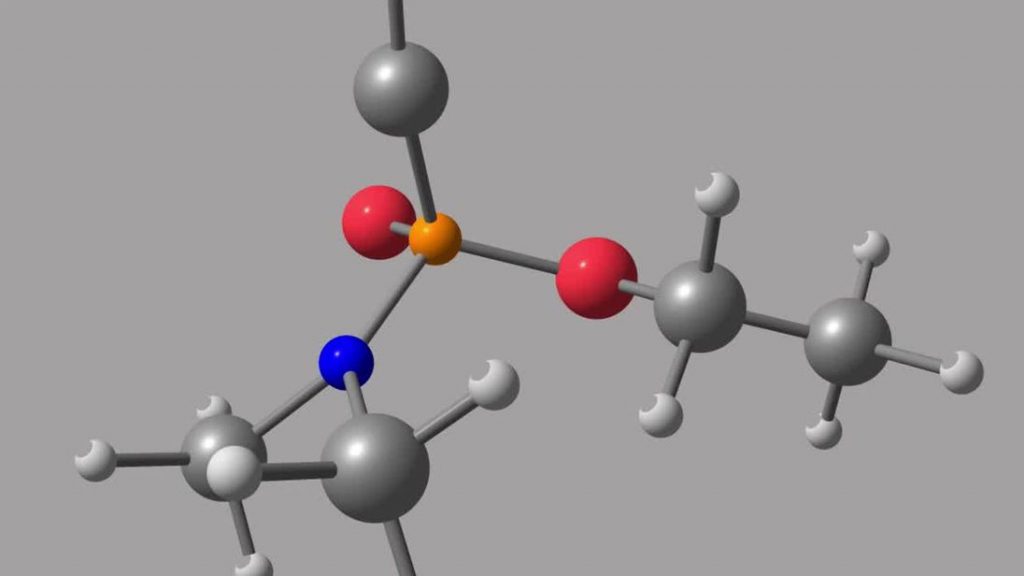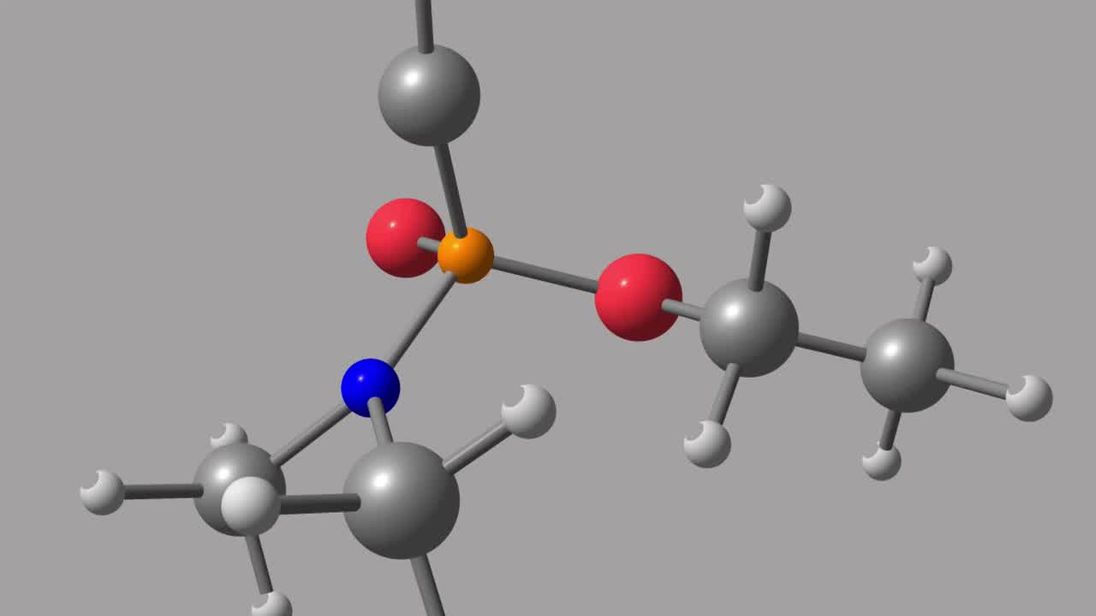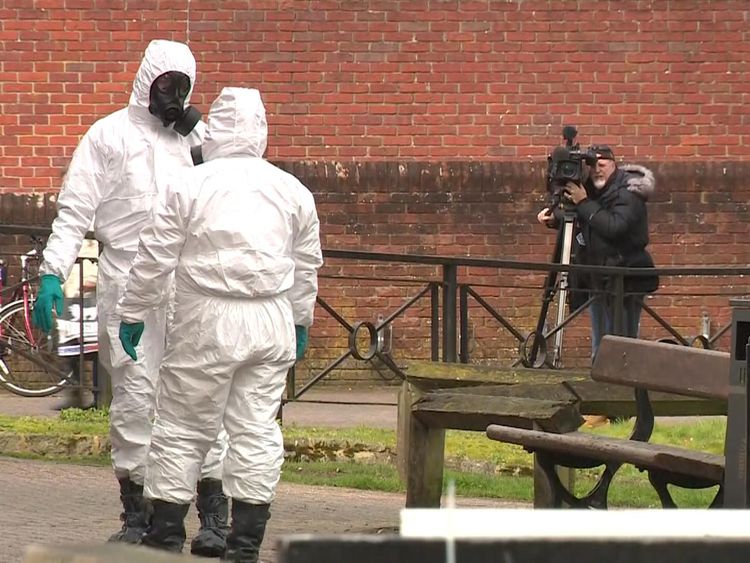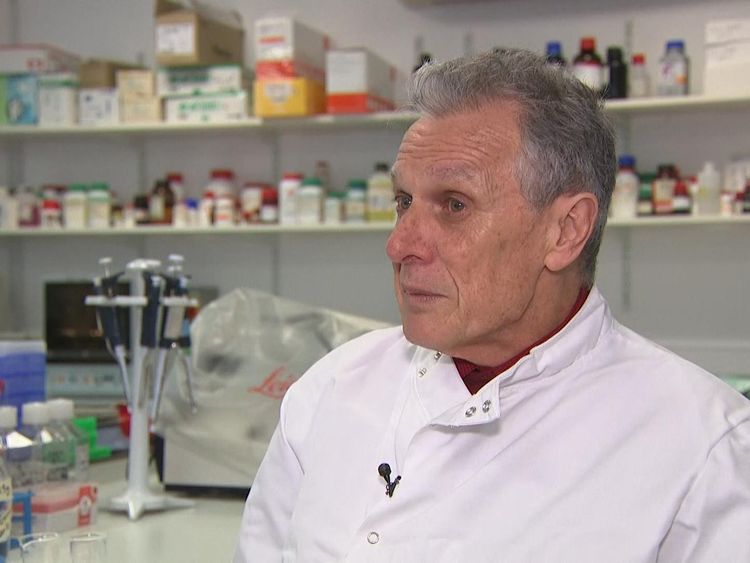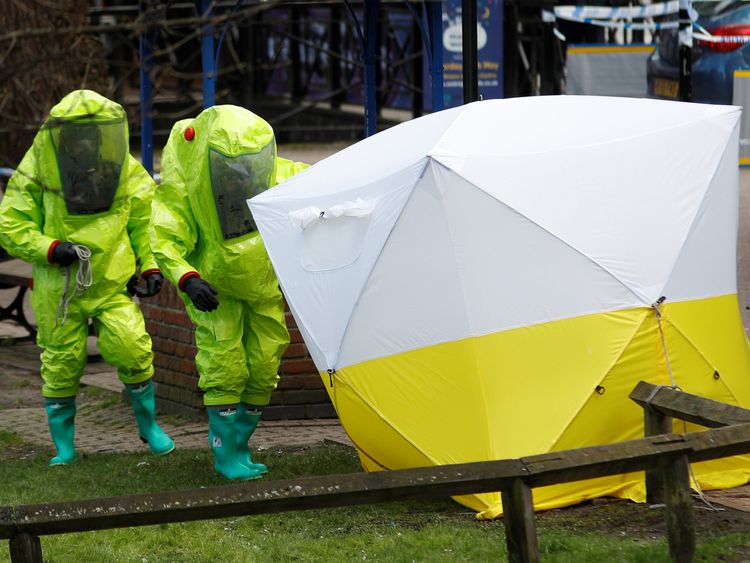Poisoned spy Sergei Skripal is no longer in a critical condition and his daughter says her strength is “growing daily”. Just a few weeks ago they were seemingly on the brink of death – so how did they survive?
Alastair Hay, Professor of Environmental Toxicology at Leeds University, tells Sky News how they may have fought off the novichok nerve agent and managed a “miracle” recovery.
:: But first, how dangerous is novichok really?
“The nerve agents are deadly,” says Prof Hay.
“That’s why they were chosen as chemical weapons. If you are exposed to a number of lethal doses then invariably it is fatal.”
They block acetylcholinesterase, an enzyme active in the nervous system.
The result is involuntary contraction of all muscles, leading to cardiac arrest and asphyxiation.
One of the scientists who helped make novichok has also told Sky News the substance was designed to do “irreparable” damage to the body.
:: Paramedics’ quick treatment was crucial
“The Skripals have survived because they’ve had great medical care,” says Prof Hay.
“I’m sure if the paramedics hadn’t been on the scene as quickly as they were – and were able to ensure that the Skripals kept breathing – they wouldn’t have survived.”
The former spy and his daughter were reportedly frothing at the mouth when they were found on a bench in Salisbury last month.
Those who made the first 999 call may have saved their lives.
:: Did they get an antidote?
There isn’t a magic-pill “cure” for novichok poisoning – which makes treating it something of an inexact science.
Prof Hay says “doctors treating the Skripals would have been a bit in the dark about some aspects of their treatment” because “a very specific (antidote) to target the nerve agent and pull it off an enzyme that is blocked is just not known”.
However, the toxicology expert says the father and daughter were likely to have been given one of several general antidotes.
In this case, they appear to have helped.
:: Sergei Skripal no longer in a critical condition
:: The body ‘flushes out’ the nerve agent
The precise way novichok is metabolised by the body is not fully known, says Prof Hay.
However, if someone can be kept alive long enough after the initial poisoning, then the body stands a chance of ridding itself of the toxin.
“The nerve agents are eventually metabolised and excreted from the body,” explains the professor.
“So it’s highly unlikely there is any nerve agent present… after even a couple of weeks.
“We don’t know too much about how these compounds are metabolised, but we do know they would eventually be excreted.”
It is possible that Ms Skripal, 33, and her father, 66, were sedated to reduce stress on the brain while the body flushed out the nerve agent.
“Once they had some idea the nerve agent had probably been removed from the body, they could bring somebody out of sedation,” explains Prof Hay.
:: Body starts making the blocked enzyme
The enzyme suppressed by nerve agents such as novichok “is eventually made again in the body”.
That’s what could have kickstarted the rapid improvement seen in the Skripals’ health over the last few weeks.
“If you can keep someone alive eventually they will recover because the body makes up what was blocked by the nerve agent,” says Prof Hay.
“And that happens increasingly, and that’s why someone progresses and improves… The recovery of the enzyme in the nervous system would ensure that the recovery would continue and improve considerably.
“I’m delighted that appears to be the case with Yulia Skripal.”
:: ‘Saved by the NHS’
“In a way it is a miracle really,” says Prof Hay.
“But also a testimony to our NHS: great doctors well-trained, looking after people appropriately and well.
“So it’s the skill of our doctors that’s ensured their survival. Without it, I’m pretty certain they would not have survived.”
From – SkyNews



